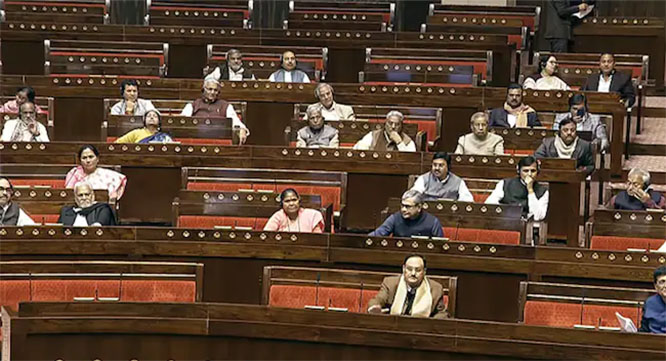
Hardline BJP leader Shobha Karandlaje has claimed that Mangaluru blast accused had got 'Islamic State training' and had imparted the same to more than 40 people. Terming the information available about the blast accused Mohammed Shariq (24) as scary, she said the accused came out on bail in the anti-India graffiti case because intense investigation did not take place.
The graffiti case refers to slogans praising terror groups that had surfaced on some public walls in Mangaluru city in November 2020. Shariq was arrested in connection with the case and later released on bail. "He (Shariq) had given ISIS training to more than 40 people. There is information that he himself got ISIS training," Karandlaje Karandlaje, who is Union Minister of State for Agriculture and Farmers' Welfare, told media persons in Bengaluru.
According to her, the suspected cooker bomb that exploded in a moving autorickshaw was meant for targeting the Kadri Manjunatha Swami Temple in Mangaluru. Maps of many temples in Mangaluru and its surrounding areas were found from Shariq, the Union Minister said adding that the accused had charted out a plan for it. The objective of the blast accused was to create communal clashes in coastal Karnataka, explosions in temples and create problems for various leaders, Karandlaje claimed.
The BJP leader also said that in the coastal region of Kerala and Karnataka, people trained by ISIS in Syria and the members of the banned outfit Popular Front of India are involved in terrorist activities. The minister appealed to the state police to cooperate with the National Investigation Agency (NIA) in providing the necessary infrastructure and desired information to arrest the terrorists. On November 19, an explosion took place in an autorickshaw which the police called a terror act after the probe.
The state government has handed over the case to the NIA for further investigation.








Comments
Add new comment